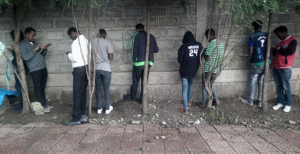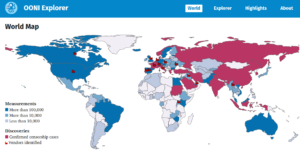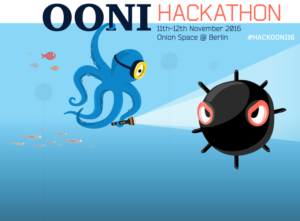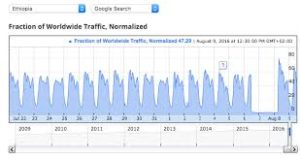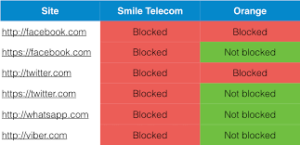Today, in collaboration with Amnesty International we are releasing a report that includes evidence of recent censorship events during Ethiopia’s political upheaval.View our joint research report here.View the pdf version of the report here.Publisher: Open Observatory of Network Interference & Amnesty InternationalPublication date: 14th December 2016
Category: Internet censorship
Jan 28
OONI releases new web UI: Run censorship tests from your web browser!
Today we are excited to announce the beta release of our new web-based user interface (WUI) that enables ooniprobe users to run censorship tests from a web browser!Whether you’re running ooniprobe from your desktop or a Raspberry Pi, you can now easily choose which tests you want to run through OONI’s web UI and run …
Jan 28
Tor at the Heart: The OONI Project
OONI aims to equip the public around the world with data that can serve as evidence of internet censorship events. Such data not only shows whether a site or service was blocked, but more importantly, how it was blocked, when, where, and by whom. This type of information can be particularly useful to the following: …
Jan 28
The Gambia: Internet Shutdown during 2016 Presidential Election
Last week we attempted to perform OONI network measurement tests in the Gambia to examine whether websites were blocked during its 2016 presidential election. But merely a few hours after we connected our probe to perform tests, it stopped working completely.We suspected that this was due to an internet shutdown. To confirm this, we referred …
Jan 28
OONI-dev meeting and hackathon 2016
Oonitarians are spread out across the globe, and OONI’s core team is no exception. We recently met in Berlin to hack on OONI’s software, work on our roadmap, and to have all those discussions that are more fruitful to have in person than on IRC. We also held a hackathon to engage new individuals with our …
Jan 28
Zambia: Internet censorship during the 2016 general elections?
In light of Zambia’s 2016 general elections, the Open Observatory of Network Interference (OONI), in collaboration with Strathmore University’s Centre for Intellectual Property and Information Technology Law (CIPIT), conducted a study to examine whether internet censorship events occurred during the election period. This study was carried out through the collection of network measurements from a local …
Aug 27
Ethiopia: Internet Shutdown Amidst Recent Protests?
Nearly 100 deaths and thousands of arrests have been reported in Ethiopia over the last days, as part of protests against the marginalization and persecution of the Oromos and Amharas, Ethiopia’s two largest ethnic groups. But the attacks and arrests may not have been the only forms of retribution carried out by the Ethiopian government …
Aug 27
Internet Access Disruption in Turkey – July 2016
With the attempted coup in Turkey, reports went out about social media being throttled and/or blocked. We analysed data about this that we collected with RIPE Atlas and the Open Observatory of Network Interference (OONI).Read more here.Publisher: RIPE Atlas & Open Observatory of Network InterferencePublication date: 19th July 2016
Aug 27
OONI releases new Web Connectivity test for detecting online censorship
Today the Open Observatory of Network Interference (OONI) is excited to be releasing a brand new test, called Web Connectivity, which is designed to detect three different types of censorship: DNS tampering, TCP/IP blocking and HTTP blocking.Read more here.Publisher: Open Observatory of Network InterferencePublication date: 3rd June 2016
Aug 27
How Uganda blocked social media, again
Today we are releasing data which indicates that two ISPs in Uganda – Smile Telecom (Uganda) and Orange – carried out IP blocking to censor access to major social media services. Interestingly, OONI’s findings illustrate that social media is not consistently blocked across networks, and that certain cases of censorship can be easily circumvented.Read more …

